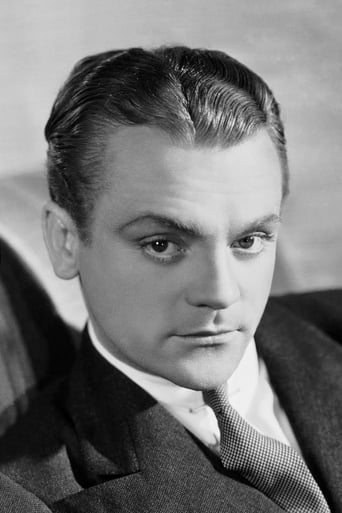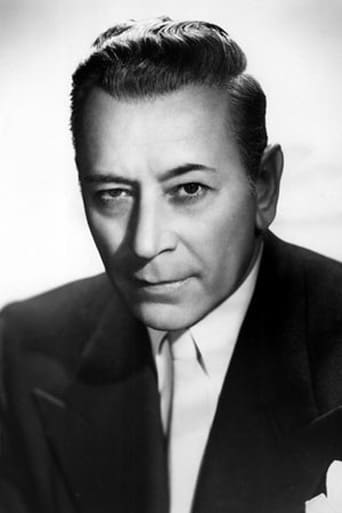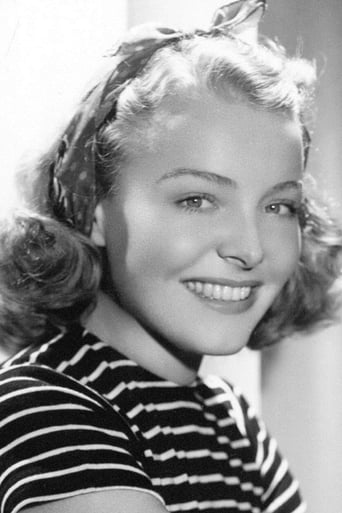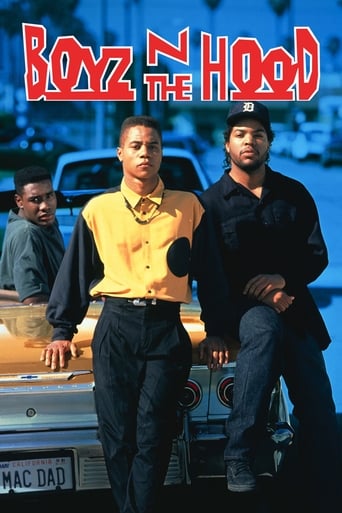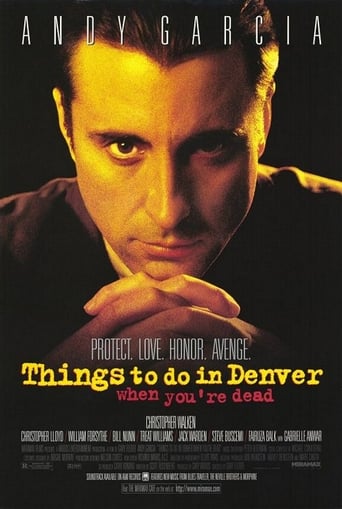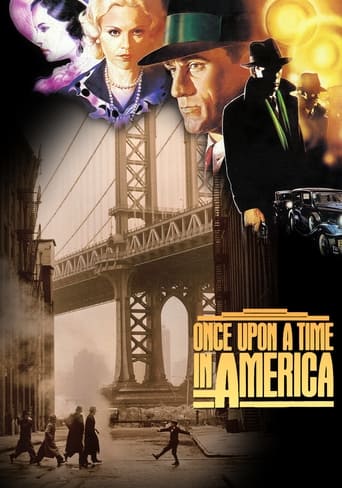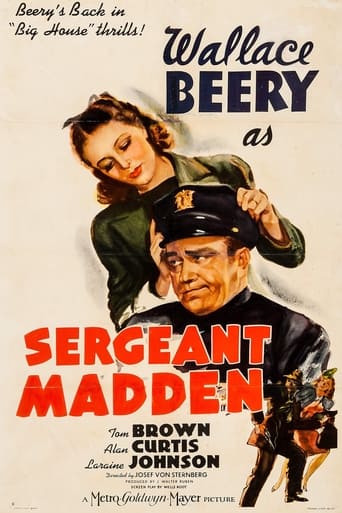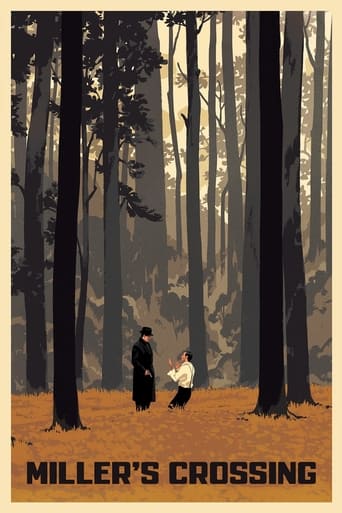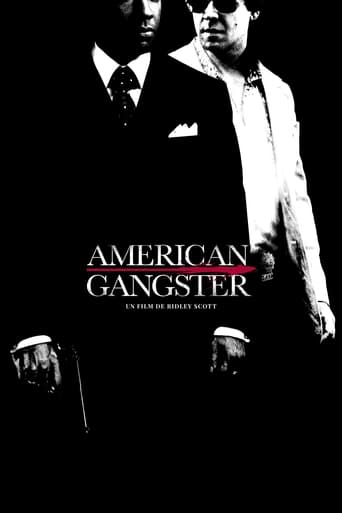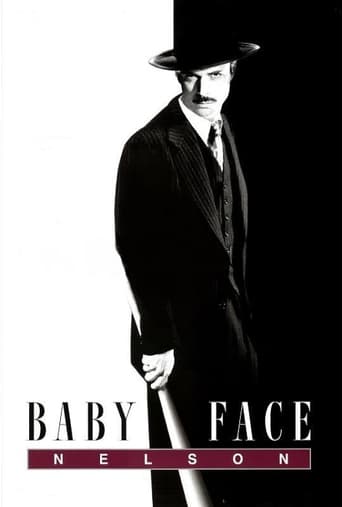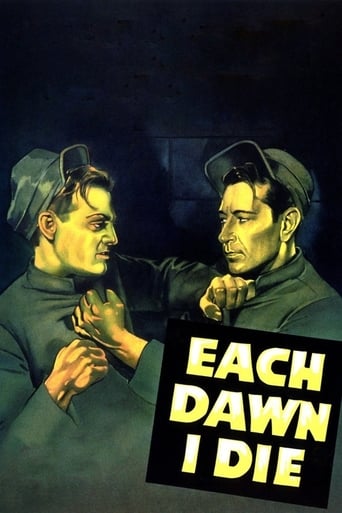
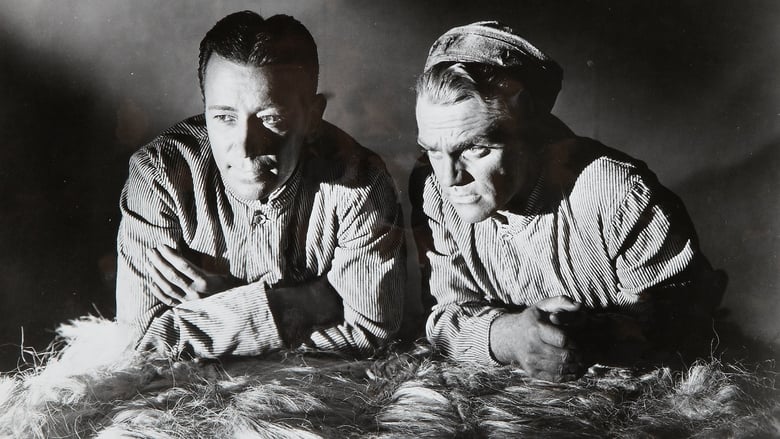
Each Dawn I Die (1939)
A corrupt D.A. with governatorial ambitions is annoyed by an investigative reporter's criticism of his criminal activities and decides to frame the reporter for manslaughter in order to silence him.
Watch Trailer
Cast


Similar titles
Reviews
One of my absolute favorite Cagney movies. Jimmy plays a reporter sent to prison on a frame-up by a crooked politician. Inside he befriends career criminal George Raft. A wonderful old crime drama from WB, the studio that was the best at these types of pictures back in the day.Yes, this is a movie full of clichés and stereotypes but I think that works for it, not against it. This is the premiere movie of its type from this era. Terrific characters brought to life by actors who seemed poured into these roles. Warner Bros. was so good at finding actors who fit certain types of parts and using them in those parts over and over, perhaps to the actors' frustrations but certainly to moviegoers' enjoyment. Backing up Cagney and Raft, who are both pitch perfect, we have George Bancroft, John Wray, Maxie Rosenbloom, Stanley Ridges, Victor Jory, Joe Downing, and Paul Hurst, to name just some. Lovely Jane Bryan is the loyal girlfriend. Such a talented cast.An exciting, well-paced picture that I never get tired of rewatching. The tough guy characters and snappy dialogue, good direction from William Keighley, attractive photography from Arthur Edeson, and yet another wonderful Max Steiner score, make this one I highly recommend. If you're just starting out exploring the gritty streets of the WB crime dramas of the 1930s and 40s, this is a great place to begin.
This was as good as it gets for entertainment then and even now. James Cagney playing a gangster is like leaves on a tree. Add George Raft, some good supporting players, a Director that enjoys his work and a reasonable story and you had a pleasurable night out back then at the movies. Cagney has mannerisms that tend to be unforgettable and the camera loved him and if you catch him in some re-takes (bloopers), he loved what he did too. Take a look at the cars, stores, the way people dressed and talked (snappy and curt) and you will visit with that era. Prison back then was more of a be a good boy or else and they want you to believe that all you lose is your freedom but it ain't so bad because you got all these pals. The prison yard is where you can do what you want within reason and it is a sort of living newspaper of current events of watching and being watched. Today, conduct like that in todays prison would get you killed. Here, it is like a warning. There is a frame-up scene (in the beginning) that is very accurate and has been used to discredit many a person using the tactic clearly demonstrated. You can substitute drugs or sex for the alcohol and the frame still holds well. Its called blackmail. This movie calls for snacking and a tasty drink and leaving you wanting to see more of both stars no problem. Enjoy ya mug
"Each Dawn I Die" is a crackerjack, black & white, Warner Brothers' prison yarn expose. The Burbank studio shifted its agenda away from gangster pictures to prison pictures. Rather that lionize mobsters, they tackled the grim conditions in prisons but they relied on gangsters to maintain tension and suspense. The plot is pretty preposterous, not only for the way that our hero James Cagney is railroaded into jail and the unlikely stunt that George Raft pulls to get him out of stir. The violence is staged with such finesse that you know what happens even though you never see the outcome. When a callous prisoner guard dies at the hands of the inmates, we see the primary inmate arm himself with a curved hook. The guard tries to get away from the angry inmates, but he is pulled back into the crowd. You know that he dies and you know how he dies, but you don't see the homicidal act. Meantime, this trim 92-minute melodrama emerges as a stinging indictment of corruption both inside and outside of prison. Cagney is as pugnacious as ever, and the Warner Brothers' stock company is as strong as ever. When he fails to get the goods on crooked district attorney Jesse Hanley (Thurston Hall), Cagney lands behind bars when the district attorney frames him for manslaughter in a hit & run. When Ross's newspaper refuses to print a retraction, the D.A.'s henchmen abduct Ross, douse him with liquor, and turn him loose in a car. A dazed Cagney collides with another car, and three die in the other automobile. A solemn, forthright judge sentences Cagney to one to twenty years in the pen. Meantime, George Raft is a gangster sent up to serve life. Society is definitely flawed in this scorching melodrama. No sooner does Cagney wind up in prison than he learns the corruption runs from the D.A.'s office to prison. Director William Keighley and scenarists Norman Reilly Raine, Warren Duff, and Charles Perry don't pull any punches. Everybody on Ross' newspaper knows that he was framed, but they haven't got a shred of evidence to substantiate their contention. While Ross is locked up, he intervenes when a treacherous inmate Limpy Julien (Joe Downing) tries to kill 'Hood' Stacey (George Raft), and Stacey promises to help Ross out of his predicament. "No matter how tough it looks or how long it takes," vows Stacy, "I'll get you out." Ross agrees to confess to the Warden John Armstrong (George Bancroft) that he saw Stacy with the incriminating murder weapon. Stacey wants Ross to turn stool pigeon so he will get a trial outside of prison. During the trial, Stacey leaps out of the courtroom from the second floor and lands on a truck with a cushion so he can escape. Conditions in prison are depicted mighty. Inmates are not allowed to speak unless they are on the exercise yard. A crippled guard, Lang (Willard Robertson), who harbors nothing but contempt for the inmates pits prisoner against prisoner and loves to generate discord amongst them. After Stacy successfully dives out the window to freedom, Lang and a gang of guards beat him up in a futile effort to extract information from him. Armstrong walks in on Lang and his cronies, and he warns him in no uncertain terms of the consequences he will face. "I've told you before I will not tolerate brutality in this penitentiary. I've laid down punishment rules that are fully adequate. And as long as I'm warden, those rules will be obeyed." This is a very important dialogue exchange because it shows that prisons were not flawed institutions. Instead, prison corruption was an aberration created by disgruntled men like the prison guard. Meantime, Ross winds up in solitary confinement, handcuffed to the bars, with no hope. Armstrong visits him in solitary and promises to get him open if he will divulge the truth behind Stacy's jailbreak. A hardened Ross refuses to sing. "You haven't got a thing on me and you're not going to get a word out of me. I know where Stacy lamed to but I'm glad he made it. I'm here on a phony rap and you've no right to keep me here. You've got no right to keep me here. So get this, from now on the rules are off, I'm going to talk when I please and do what I like. I'm going to be as mean and dirty and hard to handle as the worst con in the joint, and I will skull drag any screw who gets in my way." Meantime, Ross' girlfriend Joyce (Jane Bryan) appeals to Stacey to honor his promise to Ross. At first, Stacey hated Ross because he believed the former newspaperman had double-crossed him by alerting the press about Stacey. Anyway, Stacey tracks down the man who can clear Ross, but to achieve his goal, Stacey must go back to prison. Stacey knows that one of the inmates in the pen participated in the scheme to railroad Ross. The big finale occurs when the inmates orchestrate a jailbreak, but the National Guard shows up to thwart them. Stacey corners the canary, Shake Edwards (Abner Biberman of "The Roaring Twenties" who framed Ross, and Armstrong hears the confession. The National Guard close in and toss in tear gas. Stacey bids Ross goodbye and goes out in a hail of gunfire with Shake. "Each Dawn I Die" is worth watching despite its outlandish premise.
Each Dawn I Die is directed by William Keighley and co-written by Warren Duff, Norman Reilly Raine and Charles Perry, who adapt from the novel of the same name written by Jerome Odlum. It stars James Cagney, George Raft, Jane Bryan and George Bancroft. Max Steiner scores the music and photography is by Arthur Edeson. Story sees Cagney as crusading newspaper reporter Frank Ross, who after dishing the dirt on crooked D.A. Jesse Hanley (Thurston Hall) finds himself set up as a drunk drive killer of three innocents. Sentenced to prison for a one to twenty year stretch, Frank makes friends with gangster Stacey (Raft). It's a friendship that will have great consequences for the both of them.Out of the Warner Brothers tough guy library, Each Dawn I Die has star appeal and a pot boiling plot firmly on its side. Very much a success back on its release, it has come to be known as the film where the lead casting needed a role reversal. Yet watching it now, Cagney still gets to be a bad ass even though he's a decent man in the main. Prison hardens him, takes off his good edge and he becomes a seasoned convict. Raft on the other hand is laboured as the gangster, making this firmly Cagney's picture, but in fairness, Raft is not done any favours by the script, which appears to be undecided exactly how it wants the character of Stacey to be. In that respect the film doesn't realise the potential on offer. I mean, Cagney and Raft, in prison, amongst murder and violent guards, it really should be a springboard to a genre classic. But with Cagney often restrained and Raft phoning it in on reputation alone, story isn't strong enough to gain dramatic momentum alone. Thus the explosive ending, whilst hugely enjoyable, kind of comes of as being OTT and not in keeping with the talky tone that preceded it. Other critics, both of the time and in recent years, have bemoaned the implausible nature of the story. Personally that doesn't wash with me, if I was going into a 1939 prison based drama featuring Cagney and Raft, I'm not expecting the story to tow the party line of facts and believability! While there's much to be said about the fact that at least Each Dawn I Die is not formulaic. Thematically it's a good film, where social conscience, loyalty and moral ethics get the once over, even if the threatened expose of corruption is barely given much thought other than to launch Cagney into jail. Where, thankfully, Cagney delivers another firecracker performance. Support is strong, with Bancroft (Mr. Deeds Goes to Town/ Stagecoach) as the Warden and Bryan (Kid Galahad/ A Slight Case of Murder) as the love interest of Ross making the most telling marks. Edeson's (Frankenstein/ All Quiet on the Western Front) photography is effective for the confines of prison life, and Steiner (The Informer/ Now, Voyager) scores it with dramatic bursts and reflective strains. The flaws are evident now but you easily can see how a late 30's audience would lap this up. Not all that it can be, but with Cagney holding court and some nice themes within, it's still an easily recommended film. 7/10


